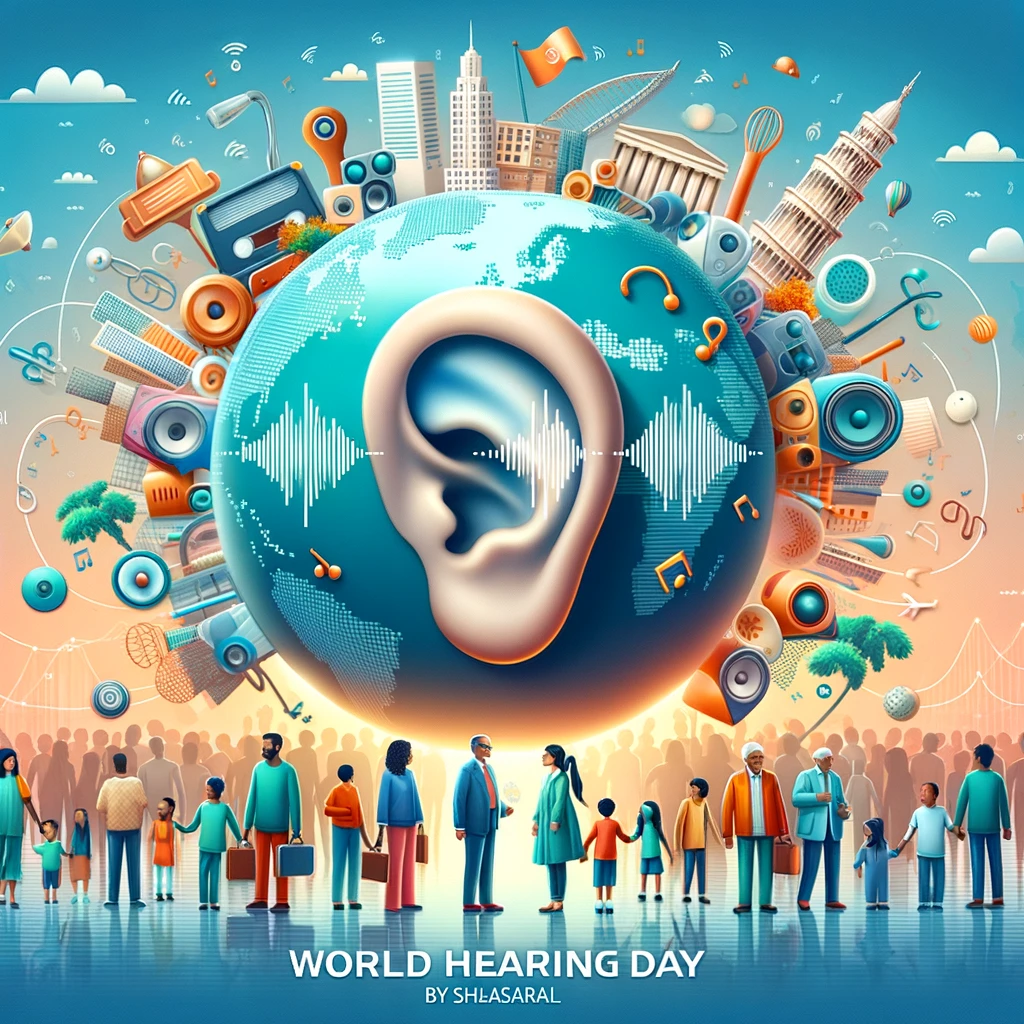
World Hearing Day 2024: Advocating for Global Ear and Hearing Health

Celebrating World Hearing Day: Raising Awareness and Promoting Ear and Hearing Care
Introduction
Every year on March 3, the global community comes together to observe World Hearing Day, a significant occasion dedicated to raising awareness about the prevention of deafness and hearing loss, as well as promoting ear and hearing care worldwide. Initiated by the World Health Organization (WHO) in 2007, World Hearing Day serves as a call to action for individuals and governments to acknowledge the importance of hearing health and to implement strategies aimed at reducing the risks of hearing impairment.
Understanding Hearing Impairment
Hearing impairment, or hearing loss, is a condition characterized by a person’s inability to hear sounds partially or entirely. This disability can significantly impact language development and communication skills, especially in young children who rely on listening to learn language and interact with the world around them. Hearing loss can be congenital (present at birth) or acquired through disease, trauma, or exposure to excessive noise, and it may vary from mild to profound levels.
The Significance of March 3
The choice of March 3 for World Hearing Day underscores the WHO’s commitment to addressing hearing loss as a global health priority. The date serves as a platform for disseminating evidence-based advocacy materials, such as brochures, flyers, and infographics, designed to inform and educate the public, healthcare providers, and policymakers about the causes of deafness and the measures that can be taken to prevent it. These materials, along with the organization of events and activities worldwide, facilitate the spread of crucial information on how to detect, prevent, and manage hearing loss.
Celebrating World Hearing Day
World Hearing Day is not just about raising awareness; it’s also a celebration of the sounds of our world and the importance of hearing health in our daily lives. Activities can range from outdoor listening sessions, where individuals are encouraged to appreciate the natural sounds around them, to educational seminars and health screenings. Reading materials, like R. Murray Schafer’s “The Tuning of the World,” can also provide valuable insights into the significance of sound and listening in our environment and culture.
Who Are Students with Hearing Loss?
Students with hearing loss face unique challenges in the classroom. These learners may struggle to take full advantage of their hearing abilities, affecting their capacity to participate in normal classroom activities and to achieve academic success. Addressing their needs requires a combination of supportive educational strategies, the use of assistive technologies, and an inclusive environment that fosters their ability to learn and communicate effectively.
Conclusion
World Hearing Day is a vital initiative that shines a spotlight on the issues surrounding hearing loss and deafness, advocating for the implementation of preventive measures and the promotion of ear and hearing care across the globe. By joining hands on March 3, we can contribute to a world where hearing loss no longer stands as a barrier to communication, education, and full participation in society. Let’s embrace the sounds of our world and commit to protecting our hearing, today and every day.